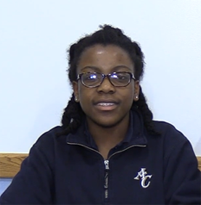Faculty and staff will attend professional development and training that focuses on providing education on diversity, inclusion, anti-racism, equity, and social justice, as well as best practices for faculty, staff, and administrators within the context of our Catholic mission.
Types of PD may include:
Formal: outside expert speakers and trainers; books, OP-Docs, films, and article talks, workshops, and activities facilitated by in-house faculty
Informal: optional small group, community-building experiential learning (i.e. attending plays, art exhibits, films, concerts followed by informal discussion)
Independent : teachers are encouraged to seek prof. development opportunities during the course of the school year and over the summer.
In order to help students develop empathy we must provide opportunities for them to be seen, to be heard, and to serve others. To that end, we will ensure that there are opportunities to acknowledge, engage, and uplift diverse student voices, and will provide education centered around issues of diversity, inclusion, anti-racism, and social justice.



